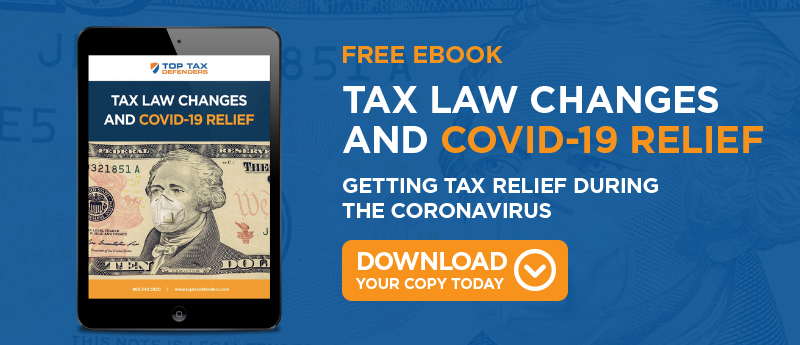
Unusual times call for unusual measures. The federal government passed a $2 trillion (that’s trillion with a “T”) relief act to mitigate the impact of SARS-CoV-2, the virus that causes COVID-19.
Called the CARES Act (Coronavirus Aid, Relief, and Economic Security Act), the far-reaching, deep-pocketed legislation was signed on March 27, 2020. Since that time, stimulus checks, business loans, and more have poured out of Washington, D.C.
The CARES Act includes additional relief signed later in April, and Congress continues to put together more aid for businesses and individuals.
What does the stimulus package mean for you?
CARES Overview
CARES contains numerous policy changes, new relief programs, a tax-filing extension, and much more. The most visible of the programs is the stimulus check sent to Americans to help with lost jobs, lost wages, and other financial pain. The Act contains a wide range of assistance.
- Stimulus checks for most Americans.
- Longer-lasting unemployment insurance coverage.
- Tax filing extension for federal taxes.
- Mortgage and rent relief.
- Expanded payroll protection.
- Economic Injury Disaster Loans (EIDLs).
- Student loan relief.
- Penalty-free IRA and 401(k) withdrawals.
- Employee retention tax credit.
Some of the money went to corporations. Also, it paid for small business loans and public health.
What You Need to Know About the Stimulus Check Payments
Likely the most well-known part of the CARES Act, the stimulus payments checks are still in the process of reaching their recipients. Some received the money as a direct deposit if the IRS had bank routing information from 2018 or 2019 tax forms. A few may receive a debit card. The rest expect to receive a paper check in the mail.
The stimulus is considered a prepaid tax credit. You don’t have to pay it back, it isn’t taxable, and it is not an advance on your tax refund. If you met any of the following eligibility parameters, you were qualified to receive either $1,200 if you’re single and $2,400 if you are married and filing jointly.
- Your individual adjusted gross income (AGI) was $75,000 or less.
- You are head of household with an AGI of $112,500 or less.
- You are a joint filer with an AGI of $150,000 or less.
For every $100 in income above the threshold, your check is reduced by $5.00. If your AGI was $99,000 or more for single filers or $198,000 for joint filers, you are not eligible for any stimulus money. For the head of household with one child, the upper AGI limit is $146,500
Part of the stimulus check program includes a $500 payment for each eligible child under the age of 17.
Others who may receive stimulus money include those getting Social Security, Social Security survivor, or Social Security disability benefits. People with supplemental Social Security Income, Railroad Retirement, or VA benefits are also eligible. They can expect to get a check in the mail or money in their bank accounts.
What if your tax returns show you made too much to be eligible, but you just lost your job? You may be able to claim a tax credit when you file your 2020 tax return next Spring. However, while the stimulus payment may not be garnished for federal or state debts except for child support, private debt collection is not prohibited from seizing the money.
What CARES Means for You as a Business Owner and an Individual
Paycheck Protection Program
CARES supports the Paycheck Protection Program (PPP) from which small businesses may receive loans to help with payroll costs while your business is shut down or underperforming. The PPP is supposed to incentivize small businesses with 500 or fewer employees to keep full-timers on staff. The loans are 2.5 times the average monthly payroll costs, up to $10 million.
If you employ 500 or fewer full-time employees throughout the loan period, part of the loan will be forgiven to the tune of eight weeks of payroll costs, rent on a leasing agreement or mortgage interest, and utilities. The loan charges 1.0% for anything due at the end of the two-year loan period.
Eligibility for the PPP includes sole proprietors, independent contractors, and self-employed people.
Employee Retention Tax Credit
Beyond the PPP, employers can get a tax credit for up to half of qualified wages paid to employees, including a qualified health plan costs. The wage cap is $10,000 per employee for all calendar quarters.
If you should fully or partially suspend operations during any calendar quarter in 2020 because of orders from a governmental authority that limits commerce and other business activity, or you have a decline of 50% in gross receipts (as compared to 2019) during a calendar quarter, you may be eligible for this tax credit next Spring.
Defer Social Security Tax Payments
If you are a business or self-employed individual, you can defer your Social Security payroll tax payments for two years. That doesn't mean you never pay them; they come due at the end. In the meantime, you don't have to worry about stretching your finances each pay period to do it now.
If you were due to receive corporate alternative minimum tax (AMT) credits for 2021, you can claim them now as a refund instead.
Unemployment Insurance
If you become unemployed, CARES adds 13 weeks to the time workers who lose their jobs due to coronavirus can receive unemployment. You get a total of 39 weeks of unemployment, and due to an expanded list of eligible workers, independent contractors, freelancers, and furloughed individuals can apply, too.
Benefits through July 31, 2020, include an additional $600 per week in benefits as well.
New Tax Day for 2020
Most people who file for federal taxes probably know this by now, but Tax Day was moved to July 15, 2020. You can wait until then to file and pay taxes for 2019. If you pay estimated taxes, your first payment for 2020 is not due until July 15 as well.
Wow! A later filing date, loans to help small businesses, and money from the government for almost everyone… the CARES Act has a lot to unpack, as it should for $2 trillion. We’ve just scratched the surface. You can read more on this SmartAsset Post. If you want to know if CARES can help you, give Top Tax Defenders a shout.




